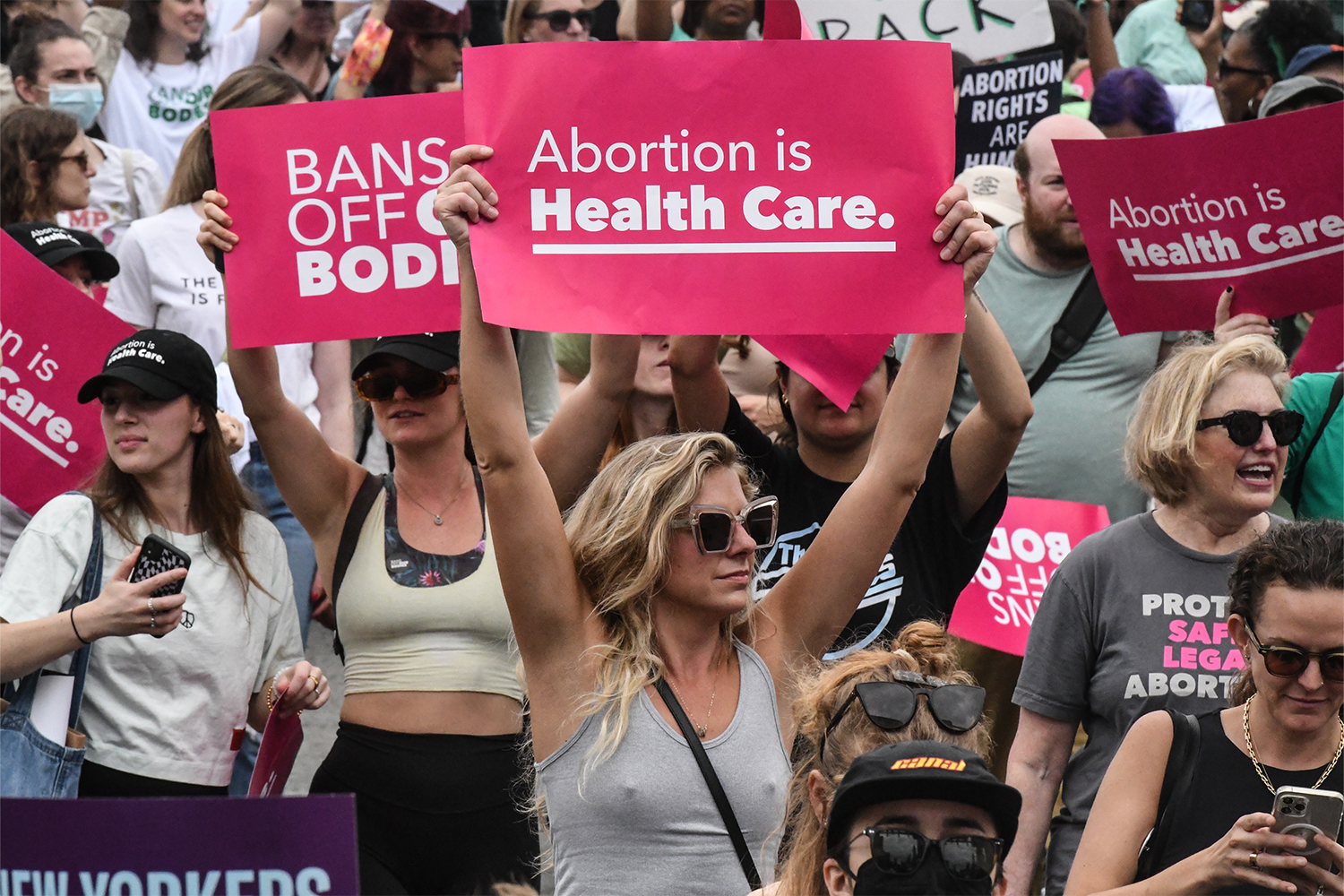How Companies Should Respond to Political Events
On the morning of Friday, June 24, 2022, Katya Laviolette was sitting in her Montreal kitchen, having coffee and talking to a colleague on the phone, when she learned that the U.S. Supreme Court had voted to overturn Roe v. Wade. As the chief people officer at 1Password, a Toronto-based password-management platform that has more than 800 employees—including about 250 in the U.S.—she was concerned that the bodily autonomy of some staff was now in jeopardy.
Laviolette hopped on several calls with her team—including the 1Password founders, executives and communications department—to discuss what they should do. Laviolette had joined the company in January that year, so this was the second political event she would be addressing, after Russia’s invasion of Ukraine. But she had some experience: In her previous role as the chief people officer at Ssense, an e-commerce company, she’d navigated the Black Lives Matter movement and the rise in anti-Asian hate crimes. She wrote public statements, researched places for donations and formed an employee resource group.

1Password was recently valued at US$6.8 billion, making it one of Canada’s most valuable tech companies, and it has a public profile to match. The company is “open-minded,” says Laviolette, and it’s focused on diversity, equity and inclusion. Leadership thought it was important to take a stance on Roe v. Wade.
By the end of that Friday, 1Password sent out a letter to its global staff, which includes employees in the Netherlands and the U.K., announcing $5,000 in travel coverage for American employees unable to obtain reproductive-health care in their home state. It confirmed the addition of a family-building assistance program for U.S. workers, which would cover things like fertility treatment and adoption. The letter also included a reminder that staff can receive counselling through the company’s employee-assistance program. The feedback was positive, but many wondered if the company would make an external statement.
Laviolette wanted to wait before speaking publicly. A few days would give the company a chance to consult with its insurance provider to see how they could expand health-care coverage and thoughtfully research non-profits that they could donate to. It also allowed her to decide what exactly she wanted to say about the situation. “We were a Canadian company taking a stance on an American issue,” says Laviolette. “We didn’t need to be first out of the gate. We took time to really think about it.”
She spent the weekend strategizing with her team. They debated an external announcement that clearly articulated the view that people should have the freedom to decide what they want to do with their own bodies. What if it backfired? What if they lost customers? What if people on social media disagreed with their decision? Ultimately, though, they felt it was the right thing to do. They decided that the message should come from Laviolette, since she is the head of people, and should be shared on her personal LinkedIn page to show that there was a real person behind the statement—not a faceless brand.
On Monday, June 27, Laviolette spent a good portion of the day writing the public post. She crafted the letter herself, incorporating feedback from her team. She wanted it to feel authentic. “The first draft was dry, very corporatey,” says Laviolette. “But I don’t speak like that. I don’t think 1Password speaks like that—we have to speak from our heart.”
When the post was complete, it conveyed a clear stance on the issue. “1Password was founded 17 years ago, in Canada, on the strong belief in equality in the workplace and beyond,” it said. “This has not changed, nor will it. The decision to overturn Roe v. Wade will have a significant impact, threatening decades of economic gains for women and depriving them of the right to make deeply personal healthcare decisions.”
The post also included the announcement that 1Password would donate $25,000 to Planned Parenthood and $25,000 to the United State of Women as well as a reminder to employees to vote on issues that matter to them and to volunteer for causes of their choosing. When the post went live, it was reposted on 1Password’s company LinkedIn page. The feedback was overwhelmingly positive. Laviolette got more than 80,000 impressions on her post within a few days, and plenty of 1Password employees shared the message, saying they were proud of the position the company took. It was a success, internally and externally.
Her advice to other companies that might need to address a similar political issue in the future: Look at it from all angles; understand your audience; think about the repercussions and be prepared for them. And, perhaps most importantly, take your time.
“Don’t be pushed to make an immediate decision,” says Laviolette. “You have to be fast and thoughtful, but do your fact-checking and consult with everyone.”
This article appears in print in the fall 2022 issue of Canadian Business magazine. Buy the issue for $7.99 or better yet, subscribe to the quarterly print magazine for just $20.









